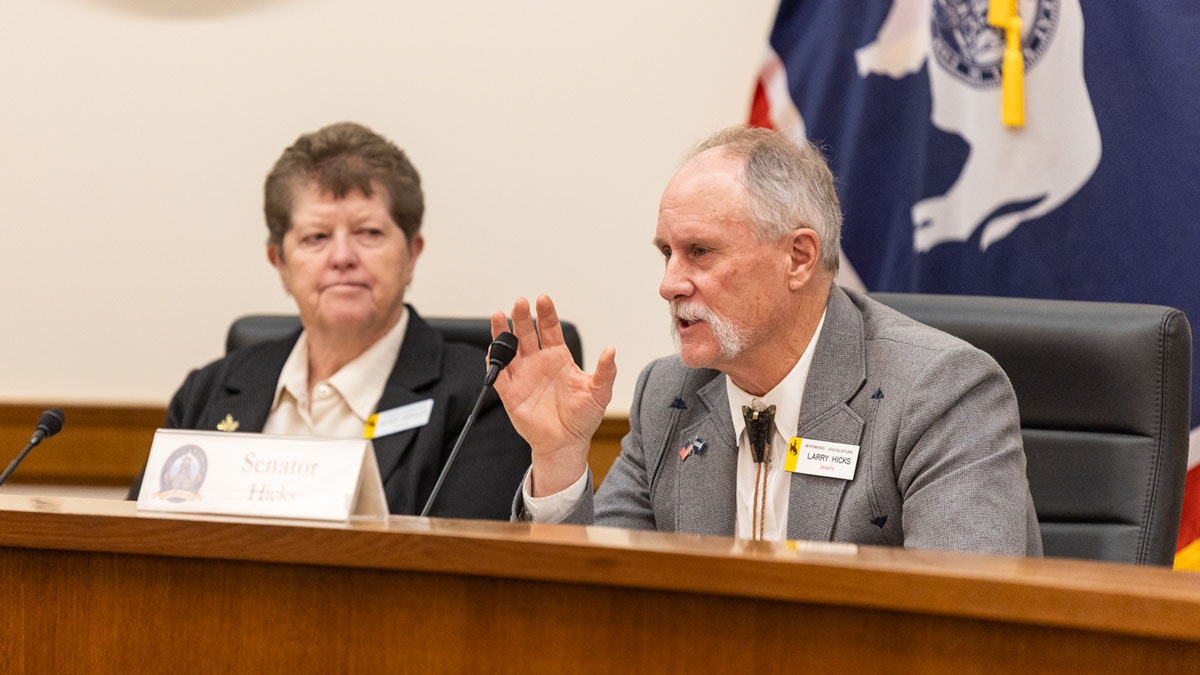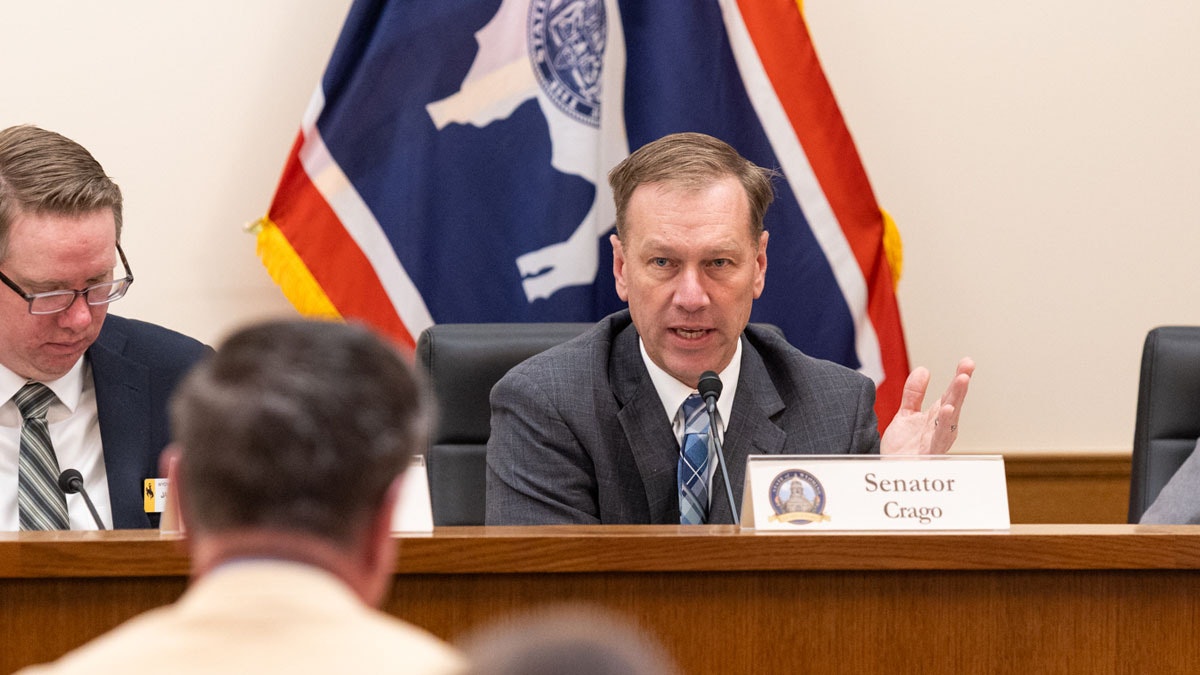Matt Walsh's new movie “Am I Racist?” claims to be a discussion of racism in the United States, but in reality it wages an even broader attack on American groupthink, mainstream media’s gullible streak, and Western culture’s newfound love of victim status.
Cowboy State Daily watched a media release copy of the film Thursday, after Daily Wire contributor Matt Walsh challenged mainstream outlets to review it.
Most did not take him up on the offer, despite the conservative-leaning mockumentary opening in more than 1,500 theaters and earning about $4.7 million from its opening weekend starting last Friday.
“This isn’t a mistake,” wrote Walsh on X (formerly Twitter). “You’d be hard-pressed to find another film that opened in (more than) 1,500 theaters that was completely snubbed by mainstream critics. If ‘Am I Racist?’ were terrible, these outlets could have reviewed it & trashed it. But the reality is they're afraid of it.”
By Thursday, 10 professional critics had reviewed “Am I Racist?” on Rotten Tomatoes, giving it an 80%; compared to 320 reviewers for “Beetlejuice Beetlejuice,” who gave it 77%.
Laymen loved “Am I Racist?” however, giving it a 98% audience review across more than 1,000 verified ratings.
Here’s Cowboy State Daily’s review.
Undercover
The film tracks conservative Daily Wire pundit Walsh’s undercover journey posing as a diversity, equity and inclusion — or “antiracist” — novice seeking guidance.
It cannot be taken seriously as a work of journalism because of multiple contrived encounters. For example, the filmmakers inserted actors into real-life interviews and paid $50,000 for one source’s interview (along with a stated total of $57,127.99 for multiple expert work sessions).
But as a comedic mockumentary, the movie has merit.
It touts an engaging story arc, irreverent social commentary and the ironic improvisational acting that only Walsh’s dry wit can propel.
Walsh overacts early on, making unnecessarily awkward scenes. But his engagement with sources improves throughout the movie.
Perceptively, the film does not conclude that American racism is dead.
A displayed quote from Stanford University senior fellow and economist Thomas Sowell heralds the film’s climactic pivot: “Racism is not dead, but it is on life support — kept alive by politicians, race hustlers and people who get a sense of superiority by denouncing others as ‘racists.’”
Spoilers Possible From This Point Forward
In the movie, Walsh reads antiracist books, earns a diversity, equity and inclusion certification from diversityinclusiontraining.com and buys sessions with antiracist thought coaches.
He ditches his signature style of thick-rimmed glasses, short hair and flannels in exchange for circle-rimmed spectacles, a “man-bun” wig, a tweed jacket and skinny jeans.
It’s not much of a disguise for the well-known pundit, but apparently in antiracist teaching circles, he wasn’t well-known enough for recognition.
Most of the unsuspecting “co-stars” Walsh baits into philosophically clumsy discussions appear to know him simply as “Matt,” a man making a documentary about antiracist principles.
Walsh’s humor fuels the conversation.
When posing as a waiter at a women’s dinner session by antiracist educators Saira Rao and Regina Jackson, Walsh lurks awkwardly, listening to Rao deride white women as malicious gossips and America as a waste of a country.
“The entire system has to burn … this country is not worth saving,” says Rao in the film. “This country is a piece of shit.”
A crash sounds as Walsh drops a stack of ceramic dishes.
Later, acting as if he couldn’t resist joining the conversation, Walsh proposes a toast, asking all the women to “raise a glass if you’re racist.”
The women raise their wineglasses and toast “to racists.”
Reparations
Walsh engages “White Fragility” author Robin DiAngelo for a $15,000 work session. After he softens her by becoming tearful over his own confusion at antiracist principles, he invites an African American man from the film crew, Ben, to sit with them.
Walsh pays Ben a few dollars in reparations — a gesture he says is to beat “the system” to a correction of its inequities.
Flustered, DiAngelo calls the interaction “really weird.” But after a brief back-and-forth, she pays Ben $30 in reparations from her own purse.
‘A Few Things Felt Off’
DiAngelo addressed the awkward scene with a public statement last week, characterizing the Daily Wire’s methods as deceptive.
She said a group claiming to be making a documentary film called “Shades of Justice” contacted her in 2023 and offered her between $10,000 and $20,000 for an interview. She agreed upon $15,000 but has since donated that money to the NAACP legal defense fund, the statement says.
“A few things felt off. The (film technicians) would not make eye contact with me and the interviewer, who was introduced as ‘Matt,’ appeared to be wearing an ill-fitting wig,” DiAngelo wrote, adding her discomfort with the reparations discussion.
DiAngelo emailed the film’s contact person and cautioned against using the reparations scene in the film, saying that should be a systemic rather than individual approach to past and current injustice.
The contact said he understood, and they hadn’t yet decided whether to address reparations, the statement says.
DiAngelo started to talk about the situation with colleagues. She then realized she’d “been played.”
Daily Wire started previewing the film late this summer, and DiAngelo learned she was co-starring in a “Borat-style mockumentary … designed to humiliate and discredit anti-racist educators and activists,” she wrote.
She said Daily Wire used a fake website, fake identities and a fake last name for Walsh.
“This experience has reinforced for me how critically important it is to do in-depth background research before making yourself vulnerable to people you don’t know, or believing and sharing what you see online,” wrote DiAngelo. “They will not prevail in their efforts to stop the work for racial justice.”
Walsh rebutted, questioning why DiAngelo would finish the interview and pay Ben reparations if both activities felt wrong to her. He called her a “grifter” and said exposing the grift is “basically the whole point of the movie.”
The Proles
Walsh doesn’t just interview experts. His film features ordinary people: white bikers drinking at a bar, young men socializing in the street, African American residents in churches and neighborhoods.
In the biker bar, Walsh unleashes esoteric questions on grizzled bikers, like, “What are you doing personally in your life to de-center your whiteness?”
“Who’s making it the center?” asks one biker, aghast. “People need to be considering how to feed their families, not what color is that man’s skin.”
During another, grunting interview with a man named “Pat,” Pat tells Walsh that skin color doesn’t matter, as the pair sit in view of a Confederate flag mounted on the wall.
To Walsh’s contrived surprise, the African Americans he interviews in their churches and on their front porches voice the same ideas as the white bikers.
“White supremacy is more pervasive than I imagined,” narrates Walsh after his discussions with the African American residents.

The Transplant
Though not as symbolic as the film’s ending nor as ironic as Walsh’s pranks on experts, the film’s lodestar scene features a Black man who said he moved from British Guyana to America in 1971. In that timeframe, the man would have been leaving behind British colonization and violent racial clashes between African Guyanese and Indian citizens in his home country.
But the man doesn’t discuss that in the film. He proclaims his love of America and of his fellow man.
“America, man, is a beautiful country,” says the man.
Walsh, still in character as a student on an antiracist journey, challenges the man to consider that America is systemically racist.
“Ah, nah baby we all bleed the same,” says the man, swatting Walsh’s arm gently with his hand. “If I cut you right there you bleed just like me.”
Walsh offers the man a copy of “White Fragility.”
The man counters that the only book he reads is the Bible.
“We has to love each other,” he says. “That’s how you get past racism.”
Groupthink
Though humorous, the mockumentary’s exposure of American groupthink paints a bleak cultural picture.
Walsh pranks a group of his own DEI students into shouting expletives at an old man who appears disabled, nonverbal and wheelchair-bound by convincing them that the old man told a racist joke decades prior.
He later hands the students whips and spatulas and tells them they’re about to whip themselves as part of their antiracist training. Two students leave, but several more remain in the class, some still holding whips.
Walsh asks himself why so many students were willing to stay in the class.
Still posing as a DEI expert, Walsh gets invited onto multiple entertainment newscasts. He pranks show anchors into performing stretching exercises in the name of “stretching out of your whiteness.”
Nearly every unwitting co-star in the movie plays along with Walsh’s outlandish pranks.
He has since announced on X that he intended to humiliate antiracist thought experts in particular.
“You can’t expose them unless they come down from their perch and open themselves up to it. But these people will never do that intentionally. They will never knowingly make themselves vulnerable,” wrote Walsh in a post explaining his choice to go undercover. “So what then?
“Either we throw up our hands and let them hide behind all of the layers of intellectual protection they’ve set up for themselves, or we use more innovative and maybe even ruthless means to lure or drag them out from behind that wall.”
Clair McFarland can be reached at clair@cowboystatedaily.com.





